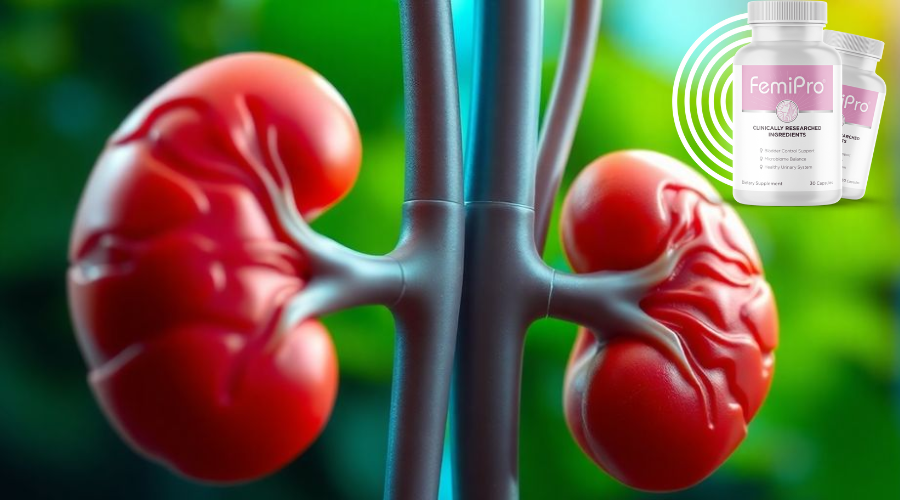Urinary System Healthy
Ever think about your urinary system? Probably not, unless something’s wrong. It’s one of those things that works in the background, filtering your blood, getting rid of waste, and keeping things in balance. From your kidneys to your bladder, each part plays a role. But like any system, it can run into trouble. That’s why knowing a bit about how it works and how to keep it healthy is super important.
Key Takeaways
- The urinary system includes kidneys, ureters, bladder, and urethra, all working together to filter and remove waste from your body.
- Staying hydrated is crucial for urinary health, helping to prevent infections and kidney stones.
- Recognizing symptoms like pain during urination or changes in urine color can help catch issues early.
- Regular check-ups and practicing safe sex can prevent many urinary system problems.
- Diet and lifestyle choices, like eating low-sodium foods and doing pelvic exercises, support urinary health.
Understanding the Urinary System

Key Organs and Their Functions
The urinary system is like your body’s waste management team, keeping everything running smoothly. It’s made up of several important organs:
- Kidneys: These two bean-shaped organs filter your blood. They sift out waste and extra water, turning them into urine. Each kidney is about the size of a fist and works tirelessly every day. They filter around 120 to 150 quarts of blood daily, producing about 1 to 2 quarts of urine.
- Ureters: These are narrow tubes that carry urine from the kidneys down to the bladder. They do this by contracting and relaxing in a wave-like motion.
- Bladder: A muscular sac that stores urine until you’re ready to release it. It can hold about 2 cups of urine comfortably for 2 to 5 hours.
- Urethra: This tube leads urine from the bladder out of your body. It’s controlled by sphincter muscles that open when you urinate.
How the Urinary System Works
Here’s a simple breakdown of how your urinary system functions:
- Blood enters the kidneys, where filtration begins.
- The kidneys separate waste from nutrients, sending clean blood back into circulation.
- Urine, made up of waste and extra water, travels from the kidneys through the ureters to the bladder.
- The bladder stores urine until you decide it’s time to go.
- Urine exits the body through the urethra.
Common Disorders of the Urinary System
Unfortunately, things can sometimes go wrong with the urinary system. Here are some common issues:
- Urinary Tract Infections (UTIs): These infections can happen anywhere along the urinary tract, but they often occur in the bladder.
- Kidney Stones: Hard deposits that form in the kidneys and can cause serious pain as they pass through the urinary tract.
- Incontinence: This is when you can’t control your bladder. It can be due to weakened muscles or nerve issues.
The urinary system plays a key role in maintaining overall health by filtering waste from the blood and managing fluid levels.
Maintaining a Healthy Urinary System
Importance of Hydration
Keeping your urinary system healthy starts with drinking enough water. Staying hydrated helps flush out toxins and can prevent problems like kidney stones and urinary tract infections (UTIs). Aim for about 8-10 glasses of water a day, but remember, your needs might be different based on your activity level and climate.
Dietary Choices for Urinary Health
What you eat can also make a big difference. Here are some tips:
- Low-sodium diet: Too much salt can lead to kidney stones.
- High-calcium foods: Foods like yogurt and milk can help prevent stones.
- Cranberry juice: Some studies suggest it might reduce the risk of UTIs.
Hygiene Practices to Prevent Infections
Good hygiene is crucial for keeping the urinary system healthy. Here’s what you can do:
- Wipe correctly: If you have a vagina, always wipe from front to back.
- Pee after sex: This helps clear out any bacteria that might cause UTIs.
- Regular cleaning: Keep the genital area clean with mild soap and water.
Maintaining a healthy urinary system isn’t just about avoiding problems; it’s about feeling good and staying active. Simple habits like drinking water regularly and eating right can make a big difference.
To ensure your urinary system stays healthy, it’s vital to maintain a healthy lifestyle with proper hydration and a balanced diet. These strategies, combined with good hygiene practices, can help you avoid common issues and keep your system running smoothly.
Recognizing Symptoms of Urinary System Issues

Common Signs of Urinary Tract Infections
Urinary tract infections (UTIs) are pretty common, especially among women. You might notice some telltale signs like a burning feeling when you pee, the need to go more often, and even some funky-smelling urine. Sometimes, you might see a little blood in your urine, which is definitely a red flag. Pay attention to these symptoms, as they can quickly escalate if ignored. If you ever find yourself with a high fever or back pain, it could be more than just a UTI—like a kidney infection which needs immediate medical attention.
When to Seek Medical Advice
It’s super important to listen to your body. If you feel any pain or discomfort while peeing, don’t brush it off. Blood in your urine, pain in your lower back or sides, or even a constant urge to pee but nothing comes out are all signs you should see a doctor. If you’re suddenly leaking urine or having trouble holding it in, it’s time to get checked out. These could be signs of something more serious going on in your urinary tract.
Understanding Urinary Incontinence
Urinary incontinence is when you accidentally leak urine. It’s more common than you think, and it can happen for a bunch of reasons. Maybe you’ve had kids, or your pelvic muscles just aren’t as strong as they used to be. It might happen when you sneeze, laugh, or exercise. There are different types of incontinence, like stress incontinence and urge incontinence, and each has its own set of challenges. Managing this condition often involves lifestyle changes, exercises, and sometimes medication or surgery.
Recognizing the symptoms of urinary system issues early can save you from a lot of discomfort and potential complications. Don’t hesitate to reach out to healthcare professionals if something feels off.
Preventive Measures for Urinary Health
Regular Check-Ups and Screenings
Being proactive about your urinary health can make a big difference. Regular check-ups with your healthcare provider can catch potential issues early. Routine screenings, such as urinalysis or kidney function tests, are essential to ensure everything is working smoothly. These tests can spot any unusual signs before they become serious problems. Think of them as a way to keep tabs on your health.
Safe Sexual Practices
Practicing safe sex is not just about preventing sexually transmitted infections (STIs); it’s also crucial for your urinary health. Using condoms can help protect against infections that could affect your urinary tract. Make it a habit to urinate after sexual activity to flush out any bacteria that might have entered the urethra. This simple step can reduce the risk of urinary tract infections (UTIs).
Pelvic Floor Exercises
Strengthening your pelvic floor muscles can be a game-changer, especially when it comes to urinary incontinence. Pelvic floor exercises, commonly known as Kegels, help support your bladder and urethra. Here’s how to do them:
- Identify your pelvic floor muscles by trying to stop urination midstream.
- Once identified, tighten these muscles and hold for a few seconds, then release.
- Repeat this process several times a day.
These exercises are easy to do anytime, anywhere, and can greatly improve bladder control. Keeping your pelvic floor strong is like giving your urinary system a little extra support.
Taking care of your urinary health isn’t just about avoiding problems; it’s about feeling good and staying active. By incorporating these preventive measures into your routine, you’re setting yourself up for a healthier future.
Treatment Options for Urinary System Conditions
Medications and Therapies
When it comes to managing urinary system conditions, medications are often the first line of defense. Antibiotics, for instance, are commonly prescribed to tackle infections like UTIs. For those dealing with bladder control issues, medications that relax the bladder muscles can be effective. In some cases, over-the-counter pain relievers may be recommended to alleviate discomfort associated with urinary tract issues.
Besides medications, therapies such as pelvic floor exercises can play a crucial role. These exercises, often referred to as Kegel exercises, help strengthen the muscles around the bladder and can significantly improve symptoms of incontinence.
Surgical Interventions
Surgery might be necessary for more severe conditions or when other treatments have failed. Procedures can range from minimally invasive surgeries to more complex operations. For instance, bladder augmentation is a procedure that increases the bladder’s capacity, which might be needed for individuals with certain types of bladder dysfunction. Another example is the placement of an artificial urinary sphincter, which can help those with severe incontinence regain control.
Lifestyle Modifications
Lifestyle changes can make a significant difference in managing urinary system conditions. Staying hydrated is essential, but it’s also important to monitor the intake of fluids to avoid overloading the bladder. Reducing caffeine and alcohol can help, as these are known to irritate the bladder.
Dietary adjustments, like reducing salt intake, can also be beneficial, particularly for those prone to kidney stones. Regular physical activity not only promotes overall health but also helps maintain a healthy weight, reducing pressure on the bladder.
It’s important to remember that treatment plans should be tailored to individual needs, and what works for one person might not be suitable for another. Always consult with a healthcare provider to determine the best course of action for your specific condition.
The Role of the Urinary System in Overall Health

The urinary system is like a well-oiled machine, working tirelessly to keep our bodies in balance. At the heart of this system are the kidneys, which play a crucial role in maintaining bodily balance by filtering blood, regulating blood pressure, and eliminating waste. The kidneys ensure that excess fluids and waste are efficiently removed, preventing harmful buildup in the body.
Impact on Quality of Life
When your urinary system is functioning well, it significantly boosts your quality of life. Imagine not having to worry about frequent bathroom trips or discomfort from urinary infections. A healthy urinary system helps you stay active and engaged in daily activities without interruptions.
Preventing Chronic Conditions
A well-maintained urinary system can help prevent chronic conditions. Here are a few ways to keep it in check:
- Stay Hydrated: Drinking plenty of water helps flush out toxins.
- Healthy Diet: Eating a balanced diet supports kidney function.
- Regular Check-Ups: Monitoring your urinary health can catch issues early.
Keeping your urinary system healthy isn’t just about avoiding discomfort—it’s about ensuring your body can efficiently handle waste, which plays a big part in your overall well-being.
The urinary system plays a vital role in keeping our bodies healthy. It helps remove waste and keeps our fluids balanced. If you want to learn more about how to support your urinary health, visit our website for tips and products that can help!
Conclusion
Keeping your urinary system in good shape is all about the little things you do every day. Drinking enough water, eating right, and practicing good hygiene can make a big difference. If something feels off, don’t hesitate to reach out to a healthcare provider. They can help you figure out what’s going on and how to fix it. Remember, your urinary system is crucial for getting rid of waste and keeping your body balanced, so taking care of it is really important. Stay informed and proactive about your health, and your urinary system will thank you for it.
Frequently Asked Questions
What is the urinary system?
The urinary system is like your body’s cleaning crew. It helps get rid of waste and extra water from your blood, turning it into pee. The main parts are the kidneys, ureters, bladder, and urethra.
Why is drinking water important for urinary health?
Drinking lots of water helps keep your urinary system working well. It flushes out waste and can stop problems like kidney stones and infections.
What are common signs of a urinary tract infection (UTI)?
A UTI can make you feel like you need to pee a lot, and it might hurt when you do. Sometimes your pee might look cloudy or have blood in it.
How can I keep my urinary system healthy?
To keep your urinary system healthy, drink plenty of water, eat a balanced diet, and practice good hygiene. Also, empty your bladder fully and avoid holding in pee for too long.
When should I see a doctor about urinary problems?
You should see a doctor if you have trouble or pain when peeing, see blood in your pee, or have pain in your lower back or sides.
What are pelvic floor exercises and why are they important?
Pelvic floor exercises, like Kegels, help strengthen the muscles that control peeing. They can help prevent leaks and improve bladder control.



